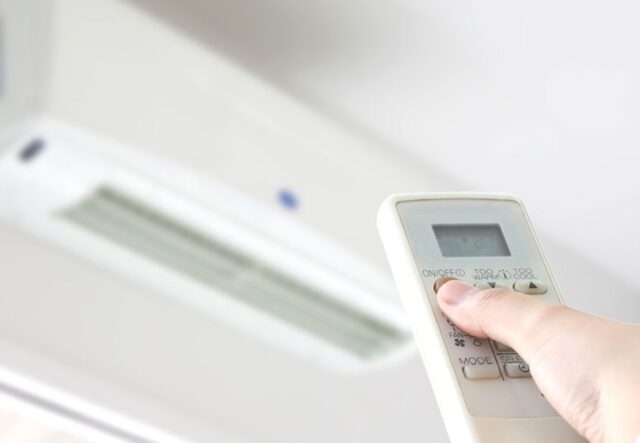
In recent years, the number of installed air conditioners has significantly increased. One of the main reasons for that is the temperature, humidity, and airflow, but it is also necessary to take care of the microbiological quality of the air we breathe every day. Namely, the air flowing in air conditioning systems is a suitable substrate for the development of fungi, mold, and bacteria due to humidity and temperature.
Indoor air quality has a big impact on our health. In today’s hermetically insulated buildings, HVAC systems play a significant role in delivering fresh air to the interior, especially during the winter, when there is much less natural ventilation. Therefore, the maintenance of this system is of primary importance in providing quality indoor air.
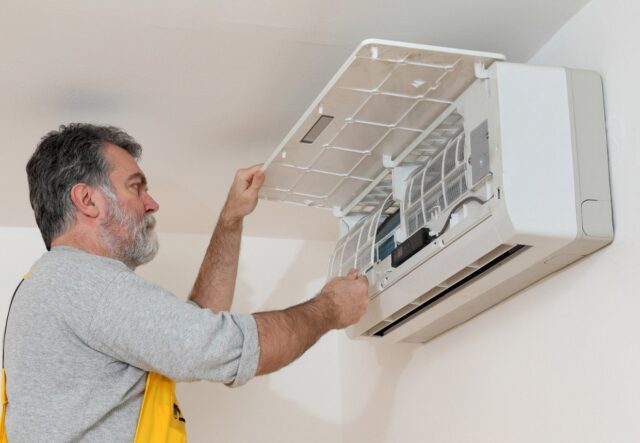
What is HVAC System?
HVAC means heating, ventilation, and air conditioning, and actually, everything from the air conditioner we all have at our home to large systems that are used in industrial complexes and apartment blocks. Heating, ventilation, and air conditioning systems are a technology for controlling indoor comfort, and that is why the purpose of this system is to provide not only the best thermal control but also have a much less impact on our environment.
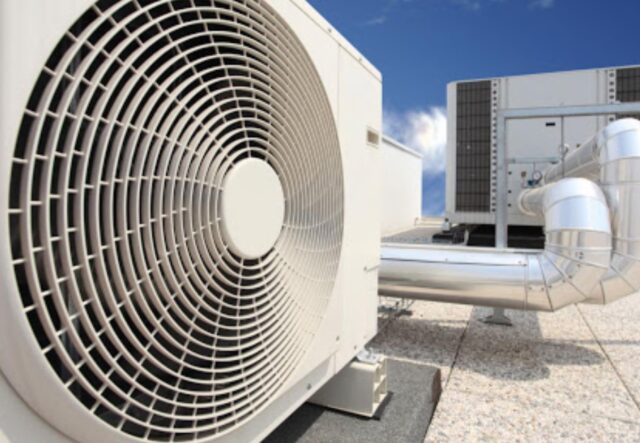
How does it work?
The installation includes two or three external compressor units and one high-power internal cooling unit, which brings the air flow to the extensive system.
Air ducts – through them, cooled air enters all rooms of the house. Due to the long Freon strips, the outdoor units (condenser units) can be mounted at a certain distance from the apartment or on the roof. It is perfect for homes with different residential and commercial spaces. Air ducts and interior devices do not spoil the interior design because they are easily installed in the attic or behind a suspended ceiling. Furthermore, there is no need to install a cooling unit in all rooms, as you can control the temperature centrally, which is very convenient. If the system has an additional module, it is possible to adjust the temperature separately in each room.
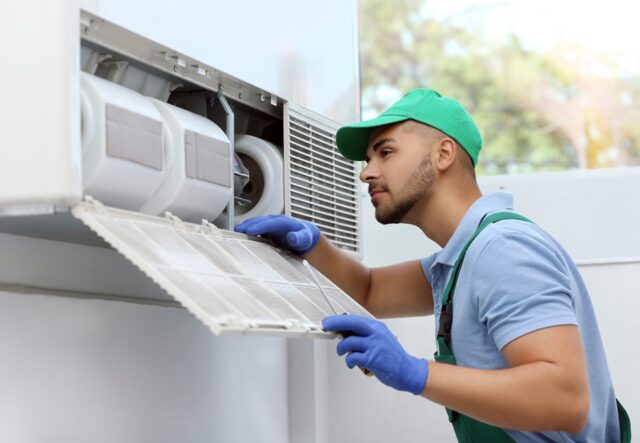
Proper and regular maintenance
Regular maintenance of various systems and devices is an integral part of responsible household management. When one of them is neglected, over time, it inevitably leads to malfunctions, material damage, and a number of other problems. If your house is of more recent construction date, you have certainly paid great attention to its hermetic insulation to achieve high energy efficiency. An integral part of the house is the HVAC system – a central system, which includes heating, ventilation, and air conditioning of the building, whose regular maintenance plays a primary role in providing quality indoor air.
If your house is equipped with an HVAC system, you are certainly informed about the measures that its basic maintenance involves. It includes annual servicing, which should be entrusted to a professional service, and periodic replacement of the air filter, which you can probably do yourself. Therefore, this is not a complicated and expensive task at all, and it can be the difference between optimal comfort and repairs of unnecessary failures that you could easily avoid. Of course, for the installation of a new HVAC system, for some repairs, and more reliable maintenance, the better choice is to call a company that deals with HVAC systems, and there are plenty of them with experienced professionals, like the SmileHVAC.ca. It is also a place where one can find everything there is on these systems, how they operate, why they are so popular, and what type of HVAC equipment is the best solution for your home.
As for the HVAC system, an integral part is a type of air filter that prevents larger particles from the air (up to 40 microns in size) from entering and clogging the sensitive machinery. In performing their task, the filters become dirty over time, and a dirty filter that is not replaced in time causes problems in the functioning of the system. It causes a pressure drop that reduces the airflow or even stops it completely. Any of these conditions can affect the functioning of various components, and the difficult functioning of any mechanical component reduces the efficiency of the entire system and can potentially lead to severe failures.
In addition to the above problems, a dirty filter exposed to condensation becomes wet, which leads to the development of mold and fungus. If this happens, you will probably have expensive servicing of the damaged unit and possibly the requirement of its complete replacement. To make matters worse, the HVAC system could spread throughout the house all those toxic chemical elements and compounds formed on the wet filter, which poses a potential health hazard.
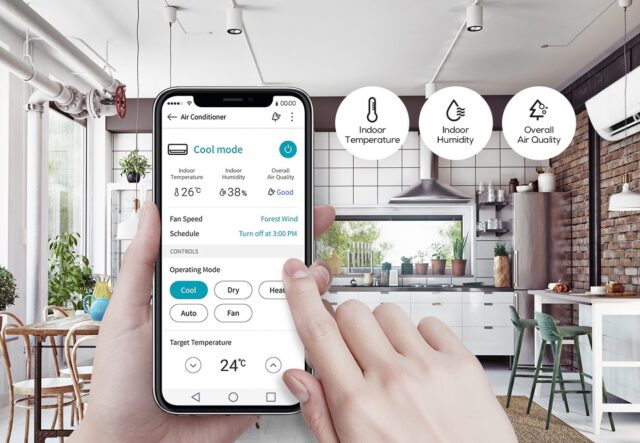
Why are they important
When it comes to efficiency, this is where Air to Water Heat Pumps (AWHP) come into play, with a mode of operation similar to a boiler, but with far greater efficiency. In fact, in terms of electricity consumption, the effect is significantly greater than the investment. Builders of new houses and offices are opting for the installation of heat pumps, and the number of new installations is growing annually. Given that the new era will be dedicated to raising environmental awareness, as well as reducing electricity consumption, with the aim of reducing costs, the governments of many countries are also advising and encouraging the installation of these pumps in new facilities.
Although it sounds too good to be true, the key to air/water heat pump operation is the absorption of heat energy from the outside air, even at temperatures below -20 degrees Celsius. This way, thanks to a good efficiency coefficient (COP), a heat pump can provide up to 3kW of heat per 1kW of electricity. With such good results, it is clear why switching to air/water pumps is inevitable in the future.
If you are looking to install a heat pump in your home, you could qualify for air source heat pump grants. This grant will cover the cost of installation, find out more by visiting Warma UK.
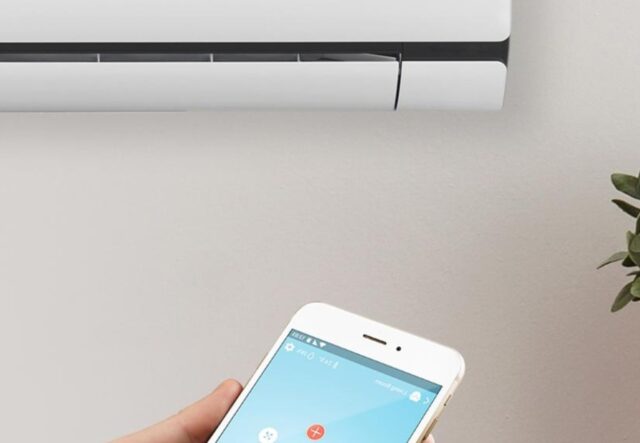
Final thoughts
The main purpose of the indoor heating, ventilation, and air conditioning (HVAC) system is to provide comfort and safety for people. HVAC is suitable for business premises as well as public buildings and houses. Also, proper heating and air conditioning increase energy efficiency and thus reduce maintenance costs, and that is why it is not only a much better solution, it is also much safer.









